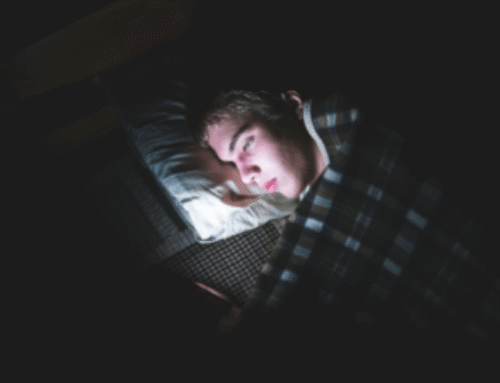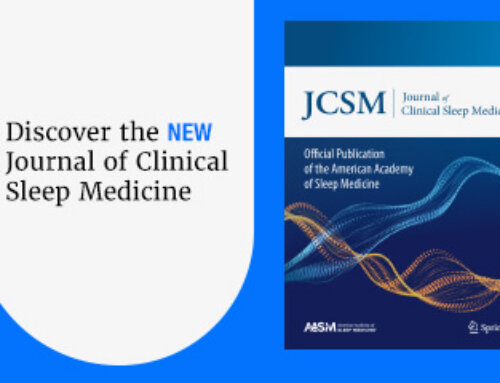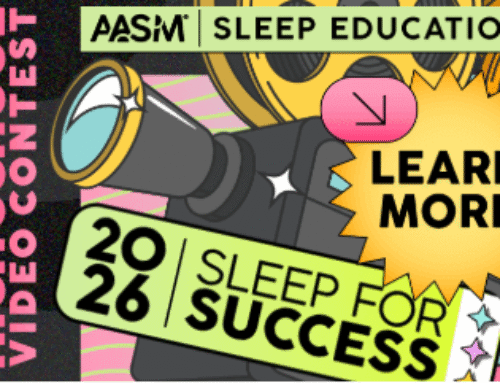EMBARGOED FOR RELEASE: June 9, 2008, at 12:01 a.m.
CONTACT: media@aasm.org
WESTCHESTER, Ill. – Insufficient sleep among adolescents may not only contribute to lower grades and a lack of motivation, but may also increase the odds of serious levels of emotional and behavioral disturbances, including ADHD, according to a research abstract that will be presented on Monday at SLEEP 2008, the 22nd Annual Meeting of the Associated Professional Sleep Societies (APSS).
The study, authored by Fred Danner, PhD, of the University of Kentucky, focused on 882 high school freshmen who provided information about their sleep habits and school grades and also completed psychological and behavioral assessments.
According to the results, students reported sleeping, on average, 7.6 hours per school night, with 48 percent reporting less than eight hours. Hours of sleep per school night were significantly positively associated with GPA and level of motivation, and significantly negatively associated with clinically significant levels of emotional disturbance and ADHD. Each additional hour of sleep on school nights lowered the odds of scoring in the clinically significant range of emotional disturbance and ADHD by 25 percent and 34 percent, respectively.
“Since these findings are based on associations rather than direct experimental manipulation, they cannot conclusively prove that insufficient sleep causes a loss of motivation, poor grades, ADHD, and emotional disturbance during adolescence,” said Dr. Danner. “The results, however, are consistent with a growing body of research that many adolescents do not get sufficient sleep and that even mild chronic sleep deprivation has serious effects on their psychological functioning. Lack of sleep should no longer be considered a traditional adolescent rite of passage because it can have serious consequences.”
It is recommended that adolescents get nine hours of nightly sleep.
The American Academy of Sleep Medicine (AASM) offers the following tips on how to get a good night’s sleep:
- Follow a consistent bedtime routine.
- Establish a relaxing setting at bedtime.
- Get a full night’s sleep every night.
- Avoid foods or drinks that contain caffeine, as well as any medicine that has a stimulant, prior to bedtime.
- Do not stay up all hours of the night to “cram” for an exam, do homework, etc. If after-school activities are proving to be too time-consuming, consider cutting back on these activities.
- Keep computers and TVs out of the bedroom.
- Do not go to bed hungry, but don’t eat a big meal before bedtime either.
- Avoid any rigorous exercise within six hours of your bedtime.
- Make your bedroom quiet, dark and a little bit cool.
- Get up at the same time every morning.
Those who suspect that they might be suffering from a sleep disorder are encouraged to consult with their primary care physician or a sleep specialist.
More information about teens and sleep is available from the AASM on the Sleep Education website.
The annual SLEEP meeting brings together an international body of 5,000 leading researchers and clinicians in the field of sleep medicine to present and discuss new findings and medical developments related to sleep and sleep disorders.
More than 1,150 research abstracts will be presented at the SLEEP meeting, a joint venture of the AASM and the Sleep Research Society. The three-and-a-half-day scientific meeting will bring to light new findings that enhance the understanding of the processes of sleep and aid the diagnosis and treatment of sleep disorders such as insomnia, narcolepsy and sleep apnea.
Abstract Title: Sleep Habits, Emotional Disturbance, and ADHD in High School Freshmen
Presentation Date: Monday, June 9
Category: Sleep Deprivation
Abstract ID: 0321
Updated Nov. 7, 2017




